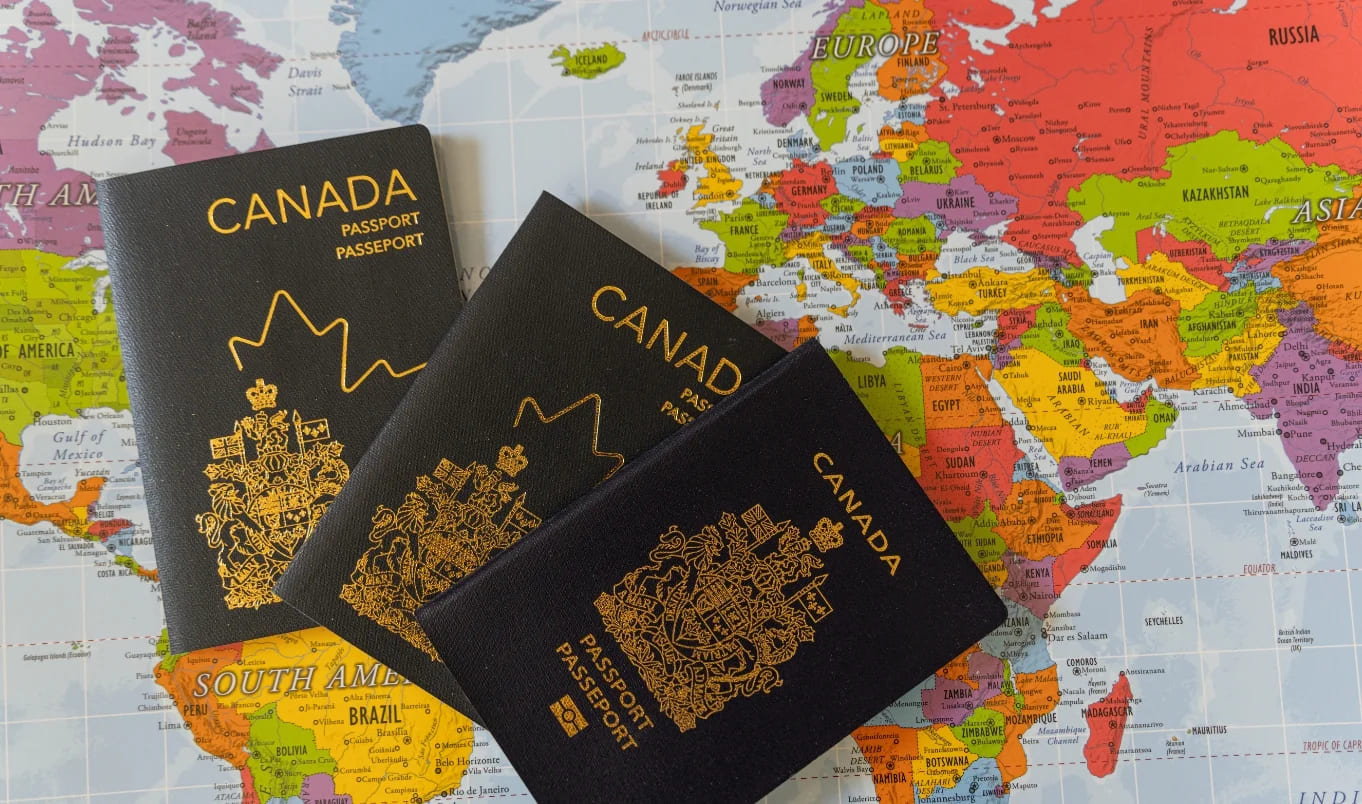Everything You Need to Know About the Medical Exam for Canadian Immigration

Strong 8k brings an ultra-HD IPTV experience to your living room and your pocket.
The medical exam for Canadian immigration is a crucial part of the application process for many individuals seeking to move to Canada. Whether you are applying for permanent residency, a work or study permit, or even temporary residency, undergoing a medical examination may be required to ensure that you meet Canada’s health standards. The purpose of this exam is to protect public health, minimize demand on Canada’s healthcare system, and ensure that applicants are physically able to carry out the roles they intend to pursue.
In this article, we will explore everything you need to know about the Canadian immigration medical exam, including the types of exams, their purpose, the requirements, step-by-step process, fees, and validity.
Purpose of the Medical Exam for Canadian Immigration
The medical exam is designed to determine whether an applicant’s health condition poses any risks to Canadian public health or safety. It also assesses whether an applicant’s medical condition could place an excessive demand on the country’s health or social services.
The key purposes of the medical exam include:
• Public Health Protection: To ensure that individuals entering Canada do not have infectious diseases that could pose a threat to the population, such as tuberculosis or syphilis.
• Preventing Excessive Demand: To prevent individuals with serious health conditions from placing a significant burden on Canada’s healthcare system. Some medical conditions may disqualify applicants if they are deemed likely to incur excessive medical costs.
Who Needs a Medical Exam?
Not all immigration applicants are required to undergo a medical exam, but certain groups do. Whether you need one depends on the type of immigration category you are applying under, the length of your intended stay, and your country of residence.
1. Permanent Residence Applicants
If you are applying for permanent residency in Canada, a medical exam is mandatory. This includes applicants under categories such as Express Entry, Provincial Nominee Programs (PNPs), family sponsorship, and others.
2. Temporary Residence Applicants
Temporary residence applicants, such as those applying for work permits or study permits, may also need a medical exam if:
• They plan to stay in Canada for more than six months.
• They have lived or traveled in certain countries for more than six months in the year before applying.
• They are seeking employment in occupations that require close contact with people, such as healthcare, childcare, or teaching.
3. Refugees and Asylum Seekers
Refugees and asylum seekers must undergo a medical exam before entering Canada to ensure they do not pose a health risk to the public.
4. Visitors
In general, visitors staying for less than six months do not require a medical exam. However, if they plan to work in health-related fields or have been in specific countries, they may be required to undergo the exam.
Requirements for the Medical Exam
The Canadian immigration medical exam must be performed by a panel physician authorized by Immigration, Refugees and Citizenship Canada (IRCC). You cannot go to just any doctor. A panel physician is a doctor approved by the Canadian government to conduct these examinations.
Documents Required for the Medical Exam:
• Government-issued identification: Such as a passport or national ID card.
• Photos: Depending on the instructions, you may need to bring passport-sized photos.
• Medical history: Be prepared to provide information about any previous or current medical conditions.
• Eyeglasses or contact lenses: If you wear glasses or contacts, bring them to the exam.
• Medical reports: If you have had any major surgeries or medical treatments in the past, bring relevant reports or documents.
In addition to these, the panel physician may ask for additional documents depending on your health history or specific circumstances.
What to Expect During the Medical Exam
The medical exam is straightforward and involves a series of standard tests to assess your overall health condition. The specific tests and procedures may vary depending on your age, medical history, and the immigration category you are applying for.
Components of the Medical Exam:
• Physical Examination: The panel physician will perform a physical examination, which typically includes checking your heart, lungs, blood pressure, eyes, ears, nose, throat, and reflexes. They will also ask questions about your general health and any pre-existing conditions.
• Chest X-ray: A chest x-ray is typically required to check for tuberculosis. Pregnant women may request a deferral of the x-ray until after delivery, but they may need to submit additional documentation.
• Urine Test: A routine urine test is done to check for any underlying kidney issues or infections.
• Blood Test: Blood tests are taken to check for infectious diseases, such as HIV and syphilis.
• Mental Health Evaluation: The physician may assess your mental health to ensure that you do not have any conditions that could pose a danger to yourself or others.
• Additional Tests: In some cases, the physician may request additional tests or specialist consultations based on the results of your medical examination. This could include further tests for heart conditions, additional scans, or follow-up appointments with other specialists.
Medical Exam Process
Step 1: Finding a Panel Physician
To begin the medical exam process, you must first locate a panel physician near your residence. You can find an authorized panel physician through the IRCC website by entering your country and city.
Step 2: Booking the Appointment
Once you find a panel physician, contact their office to book an appointment. Make sure to inquire about any specific preparation requirements, such as fasting before the exam or bringing certain documents.
Step 3: Attending the Medical Exam
On the day of the exam, bring all the necessary documents, including your identification, medical history, and any other paperwork requested by the physician. The doctor will conduct the exam, perform the necessary tests, and submit your medical results directly to the IRCC.
Step 4: Medical Report Submission
The panel physician will submit the results electronically to the IRCC. In some cases, you may receive a copy of the report or a confirmation receipt. Once your exam is completed, it typically takes a few weeks for the IRCC to review your medical results.
Fees for the Medical Exam
The fees for a Canadian immigration medical exam vary depending on the country where the exam is conducted and the specific tests required. On average, you can expect to pay between CAD $150 to CAD $300.
The cost of the exam may include:
• The consultation fee.
• Fees for specific tests such as x-rays, blood tests, and urine analysis.
Make sure to confirm the total cost with the panel physician when booking the appointment, as costs can vary by location and the complexity of the tests required.
Validity of the Medical Exam
A Canadian immigration medical exam is valid for 12 months from the date the exam was performed. If your application is not processed or finalized within this period, you may be required to undergo another medical examination.
For applicants who require re-entry into Canada or are applying for permanent residency, it’s important to ensure that your medical exam remains valid throughout the application process.
Common Medical Conditions That May Affect Your Application
Some medical conditions may lead to concerns about whether an applicant will be admissible to Canada. There are two main reasons for medical inadmissibility:
• Danger to Public Health: Applicants with highly contagious diseases such as active tuberculosis or untreated syphilis may be deemed inadmissible.
• Excessive Demand on Health or Social Services: Conditions that could lead to excessive costs, such as organ transplants, dialysis, or long-term institutional care, may make applicants ineligible unless exemptions apply.
• Exemptions: Certain individuals, such as sponsored spouses or dependent children, may be exempt from inadmissibility based on excessive demand, even if they have medical conditions.
The medical exam for Canadian immigration is a key step in the application process for many individuals seeking to move to Canada. It ensures that applicants meet health standards, do not pose a threat to public safety, and will not place excessive demands on the healthcare system. By understanding the requirements, preparing adequately, and following the process step-by-step, you can navigate this essential part of your immigration journey with confidence.
From the initial physical examination to submitting the necessary tests, being informed about what to expect, the fees involved, and the validity of your medical exam can help streamline your application. Ensure that you choose an authorized panel physician and provide accurate health information to avoid delays in your immigration process.
Note: IndiBlogHub features both user-submitted and editorial content. We do not verify third-party contributions. Read our Disclaimer and Privacy Policyfor details.







